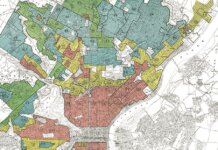WORD ON THE STREET: I'm not sure when you last found yourself in a planetarium. At the start of my most recent visit, I was handed a brochure that said, ‘Sit anywhere. All seats provide equal viewing of the universe.’ I took the brochure, but instead of contemplating the stars, I contemplated my job as a governor on the Federal Reserve Board.
And it occurred to me that the brochure was wrong. Completely wrong. All seats do not provide equal viewing of the universe. Some seats are better than others. It's not just that the Big Dipper is clearer than Ursa Minor from certain seats. If you want, for example, to see the economy, you don't necessarily want to always be sitting in Washington. That is not a seat that tells you everything you need to know about the economy. You have to break out, set free and hightail it out of the Beltway to Los Angeles. It's critical to appropriate policymaking that we get a multidimensional view of the so-called economic universe.
From that perspective, it is an understatement to say that these are profoundly challenging times for millions of Americans. Many families have suffered significant declines in their net worth over the past several years, especially as the value of their homes and other assets has plummeted. Many households have faced job losses or large reductions in the number of hours worked – events that have reduced family income and well-being.
While I'm not happy to bear witness to households trying to navigate these difficulties, we would be poor policymakers if we consistently avoided the seats that give us this view.
The overall U.S. economy had started to contract by the beginning of 2008 and entered the severe phase of the recession during the late summer of that year with the near-collapse of the financial system. By any measure, the cumulative decline in economic activity was large. Nationally, employment decreased by nearly 9 million, while the unemployment rate climbed from roughly 5% to 10%. As measured by real gross domestic product (GDP), aggregate economic output contracted 5% during the recession, and the purchasing power of household after-tax income declined by about the same amount.
The recent contraction in the housing sector has also been the most severe episode since the Great Depression. National house prices have fallen 33% in nominal terms since their peak in 2006. In contrast, home prices dipped only 2% in the early 1990s downturn, and they did not decline at all in the early 1980s recession. The recent drop in housing market activity also has been dramatic. Home sales plunged more than 50% from peak to trough, while housing starts plummeted more than 75%. Indeed, the decline in housing starts associated with the recent recession was nearly as large as that which occurred during the Great Depression.
In Los Angeles, the recent recession was even deeper than for the nation as a whole. The unemployment rate, which was about the same as the national average prior to the recession, rose to a peak of nearly 13%. Moreover, the number of jobs in Los Angeles fell by a cumulative 9%, nearly half as much as the decrease in national employment. Those of you with a long-standing connection to the local economy certainly recall the prolonged downturn of the early 1990s, which followed a real estate crash, cuts in federal military spending in the region, and a sharp contraction in local industries such as aerospace manufacturing.
However, the increase in the unemployment rate was even larger during the recent recession than in the 1990s episode. In fact, Los Angeles's peak unemployment rate in 2010 was the highest ever recorded in this city in the almost four decades during which local-area statistics have been published.
In the Los Angeles metropolitan area, the contraction in the housing sector has been even more extreme than for the nation as a whole. Home prices have fallen nearly 40% from their peak, while the issuance of building permits for the construction of new homes dropped nearly 90%.
The Los Angeles economy has had farther to climb than the nation as a whole in order to achieve a full recovery, and it also has been slow going. The unemployment rate in the Los Angeles area has been declining, but it is still at almost 12% and remains well above the national average. The housing market in Los Angeles has remained depressed, similar to conditions nationwide. House prices in the Los Angeles area have continued to decline, and single-family construction has been flat, although multifamily construction has picked up.
Recent research by staff at the Federal Reserve has shown that the current recovery from the financial crisis has been even slower than would have been expected. This unusually weak recovery can be at least partly explained by the large drop in house prices and severe slump in housing activity that played such a major role in the recent recession.
Even though, technically speaking, the housing market contraction preceded the financial crisis, the financial crisis undoubtedly magnified the depth of the housing bust as the erosion in the net worth of households and the severely strained balance sheets of financial institutions led to a sharp tightening of mortgage credit.
The drop in national house prices erased $7 trillion in household wealth. Home equity was a large share of the total assets of low- and moderate-income families prior to the recession, so the drop in housing wealth has hit many families particularly hard. Because wealth is one of the key factors that households consider when deciding how much to spend, the drop in housing wealth is expected to reduce household expenditures – the so-called wealth effect.
This restraint on consumer spending is especially severe for households who owe more on their mortgage than their house is worth because such ‘underwater’ households have been unable to take advantage of low mortgage rates by refinancing. With more than one out of every five mortgages nationwide estimated to be underwater in 2011, the resulting restraint on consumer spending and its effect on slower economic growth is appreciable.
The heavy load of housing-related debt that many households are still carrying may be affecting consumer spending even more powerfully than would be suggested by the drop in house values alone. For example, recent academic research has found that highly indebted households cut their spending on goods and services more severely in response to a drop in home values than do less-indebted households hit with the same reduction in home values.
This result suggests that consumer spending may not act powerfully to revive the economy until Americans' financial situations have improved. Alternatively understood, this research finding suggests that monetary policy alone may be insufficient to promote a more robust and sustainable improvement in household net worth.
Besides the substantial direct losses in the wealth of households through losses in home equity, other housing-related issues have likely been holding back the economic recovery. The collapse of house prices coincided with a sharp increase in mortgage defaults and foreclosures, leaving financial institutions with large holdings of residential real estate owned (REO) properties. As these properties were put up for sale on the market, they contributed to the already-bloated supply of vacant homes available for sale and put further downward pressure on house prices.
In Los Angeles, for example, more than one out of every four homes sold in 2011 were REO properties. And the inventory of mortgages that are more than 90 days delinquent or somewhere in the foreclosure process amounts to more than five times the current stock of REO, illustrating the large ‘shadow inventory’ of properties that might be put up for sale sometime in the future.
Concerns about future defaults and foreclosures have caused lenders to tighten their lending standards considerably – raising down-payment requirements, requiring extensive documentation and charging substantial fees to all but those with the highest credit scores. This marked change in mortgage credit standards has restricted access to mortgage credit for many potential borrowers, limiting both home purchases and refinancing.
In addition, it doesn't take extensive forays into many neighborhoods in Los Angeles to see that the foreclosure process imposes less quantifiable but heavy costs on homeowners and communities.
Housing has played a central role in magnifying the recession and delaying the recovery. In Los Angeles, there is huge demand for information on foreclosure recovery from organizations that serve families going through the process of losing their homes.
Residents in Los Angeles want financial institutions and recipients of grants from the Neighborhood Stabilization Program to understand the most effective ways to use funds from that program to acquire, rehabilitate and repurpose REO properties owned by financial institutions and vacant properties. We have seen much interest by financial institutions, nonprofit housing providers, and advocates, local government and academics in understanding new approaches to REO disposition and financing mechanisms.
Sarah Bloom Raskin is a governor of the Federal Reserve System. This article is adapted and edited from a speech delivered at the Federal Reserve Bank of San Francisco Business and Community Leaders Luncheon in Los Angeles on April 12. The full text is available online.












